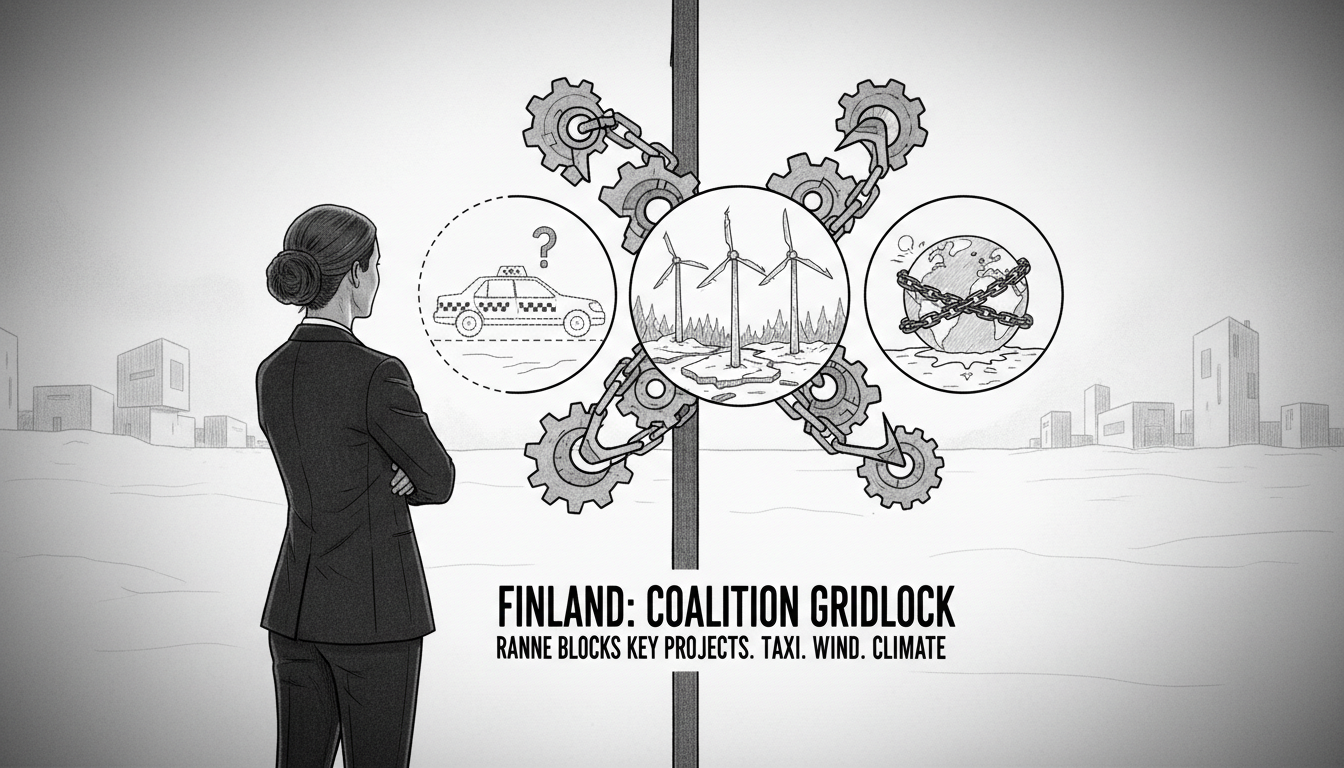Finland's coalition government faces growing paralysis as Transport and Communications Minister Lulu Ranne reportedly blocks multiple legislative initiatives. Government partners describe Ranne as unwilling to compromise on key policies, creating significant obstacles for the administration.
The political deadlock affects several major projects. The government cannot reach agreement on new taxi legislation. Proposed land use laws for wind power projects remain stalled. Climate policy programs also sit incomplete despite pressing environmental deadlines.
Even Ranne's own party, the Finns Party, expresses surprise at the minister's approach. Sources within the party acknowledge that Ranne's actions cause confusion among colleagues. The minister's uncompromising stance creates unusual tensions within Finland's traditionally consensus-driven political culture.
Finland's political system typically relies on broad agreement among coalition partners. The current situation represents a departure from this norm. Minister Ranne's approach raises questions about how the government will advance its agenda during this parliamentary term.
The government did achieve one recent breakthrough. In late October, state and municipal authorities agreed on funding for the Western Rail Line, known as the Hour Train. This agreement followed extensive negotiations and demonstrates that progress remains possible despite current challenges.
International observers note that Finland's political stability often contributes to its strong economic performance. Continued legislative gridlock could affect investor confidence and policy implementation timelines. The situation warrants monitoring as the government attempts to resolve internal differences.
What does this mean for Finland's international commitments? The country has ambitious climate targets and infrastructure modernization plans. Delayed legislation could impact Finland's ability to meet these goals. The transport and communications portfolio affects digital infrastructure development, green transition efforts, and transportation safety reforms.
The political standoff comes at a crucial time for Nordic cooperation. Finland's ability to implement coordinated regional policies depends on functional domestic governance. Other Nordic nations will watch how Finland resolves these internal challenges while maintaining its traditional political stability.
Government insiders suggest the situation requires intervention from party leadership. The prime minister's office likely needs to facilitate discussions between coalition partners. Without resolution, Finland's legislative agenda faces continued delays affecting multiple sectors of society and economy.

